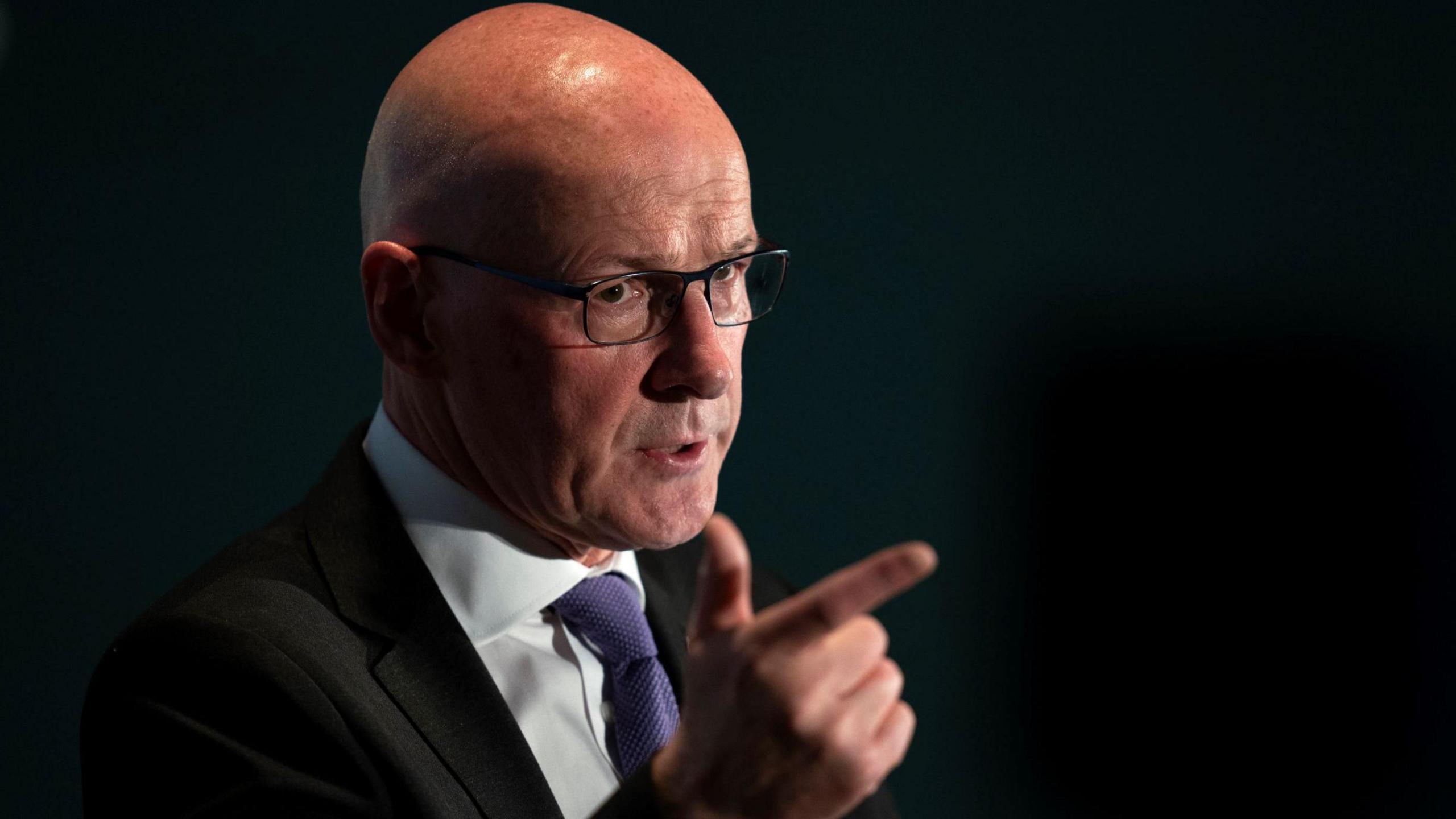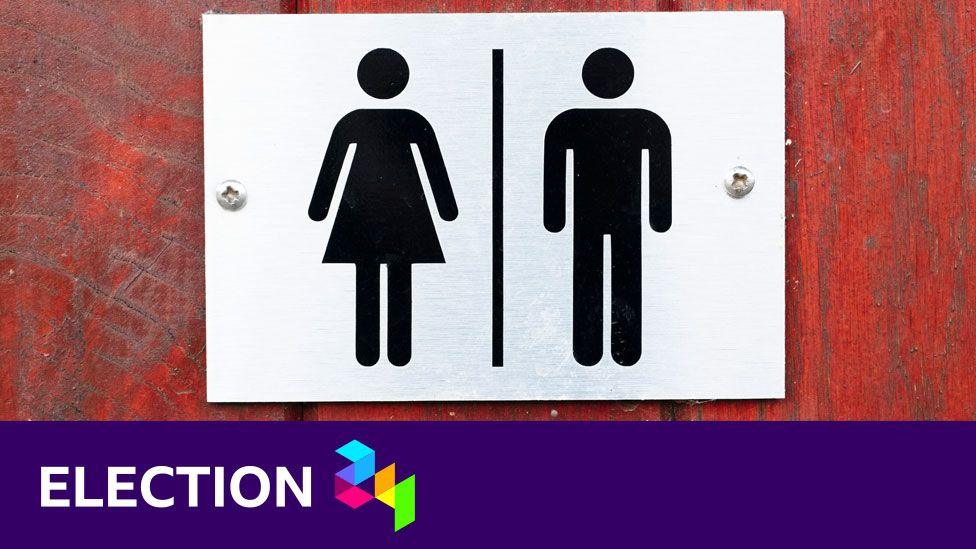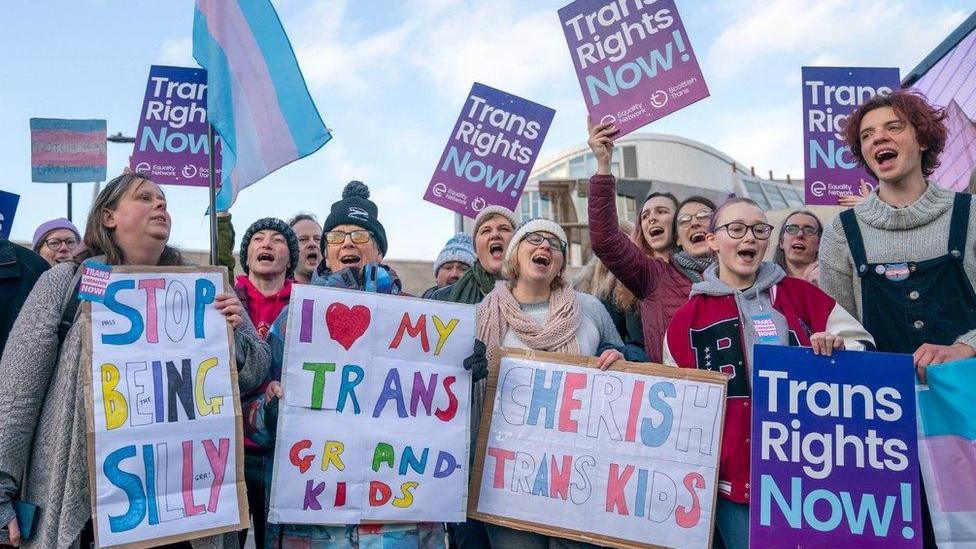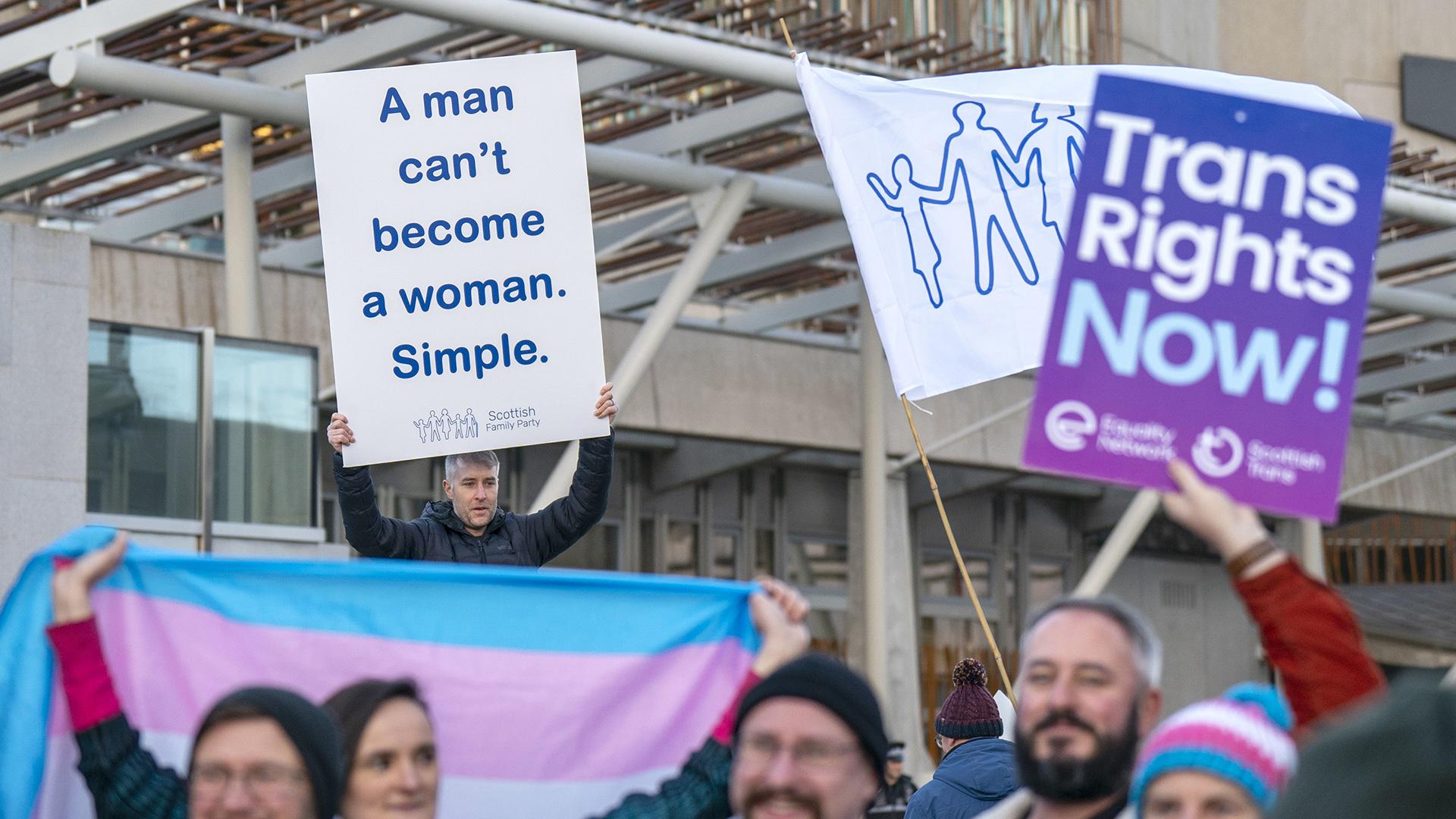Equality law changes an 'outright threat' to devolution - Swinney

John Swinney criticised the new Conservative proposals
- Published
Conservative proposals to make gender reassignment a reserved issue for the UK government are "an explicit, outright threat" to devolution, the first minister has said.
John Swinney told BBC Scotland News the Tory election pledge to rewrite the Equality Act would "erode the powers" of the Scottish Parliament in the process.
The minister for women and equalities Kemi Badenoch told the Times newspaper it was "impracticable for gender recognition regimes to vary in different parts of the country."
The Scottish government's gender recognition bill was blocked last year by the UK government, who said the draft law would conflict with equality protections that apply across the home nations.
A legal challenge to the veto was then rejected at the Court of Session in Edinburgh in December.
Mr Swinney accused the Conservatives of being "on the warpath" against Holyrood with the new proposal.
He said: "The Conservatives are interested in using any excuse they can to erode the powers of the Scottish parliament."
The first minister added that the Equality Act changes marked "an explicit, outright threat" and "an attack" on devolution.

Kemi Badenoch said it was "impracticable" for gender recognition to vary in the UK
Under the Equality Act 2010, external, it is illegal to discriminate against anyone because of "protected characteristics", which include age, disability, religion, race, sex and sexual orientation.
However, debate is ongoing regarding whether sex only refers to biological sex, or if people with a gender recognition certificate are also included in the legislation.
The Tory proposals would see the act only apply to biological sex, which would mean places such as public toilets, hospital wards, and rape crisis centres would be able to legally refuse those who are biologically male but identify as female.
Scottish Conservative leader Douglas Ross denied the party was trying to create a culture war over the issue.
He said women and girls should have the same protection across the UK, and that it was only for this "specific issue" that power would return to Westminster from Holyrood.
He added: "It’s taking on board the concerns we’ve seen in court cases, the fact we’ve seen the UK and Scottish government going to court on this issue, and it was a request of the Equalities and Human Rights Commission to introduce and state in law biological sex as the definition of sex."

Meanwhile, Scottish Labour leader Anas Sarwar called the policy pledge an attempt to create a "culture war."
Mr Sarwar told BBC Scotland News that the legislation required "clarification", rather than being re-written.
He said: "What the Conservatives want to do is create this as a dead cat issue in this election, to create a culture war and talk about a long process of reforming legislation, when in actual fact the Equality Act already protects biological sex."
Mr Sarwar added that any legislation changes required a "grown-up approach" and that Labour would look to issue further guidance in the near future.
Lorna Slater, the co-leader of the Scottish Greens, championed the gender recognition bill at Holyrood. She said she was "very concerned" at Ms Badenoch's comments.
She added that it was "outrageous that Westminster is further encroaching into the devolution settlement".
Wendy Chamberlain, the deputy leader of the Scottish Liberal Democrats, said that the plans had "no substance behind them".
She added: "The Section 35 order last year has, de facto, made gender reserved to Westminster and in terms of single sex provisions, those exemptions already exist in the act as well."

Culture wars and constitutional rows
When Holyrood passed the Scottish government’s gender recognition reforms, the UK government didn’t shy away from sparking an almighty constitutional row by using its powers to block the law, writes Lynsey Bews, Political Correspondent.
Now the Conservatives have gone a step further by stating they intend to bring the issue under the control of Westminster in order to - as the equalities minister Kemi Badenoch put it - “stop devolved governments messing around in this space”.
The plan is endorsed by their Scottish colleagues, who believe their opposition to the SNP’s plans to introduce a system of self-ID for trans people is a potential vote winner in this election.
Certainly the issue has taken up a huge amount of political bandwith for the nationalists over the last few years.
It has exposed divisions within the SNP, with tensions emerging over the Greens’ influence in this area during the Bute House Agreement.
John Swinney is unlikely to relish getting back into the weeds of the gender debate but he will feel on solid ground when it comes to talk of power grabs.
But the prospect of a UK government taking control of a devolved issue allows the SNP to pivot onto the ever-present constitutional debate.
- Published3 June 2024

- Published10 May 2024

- Published20 December 2023
